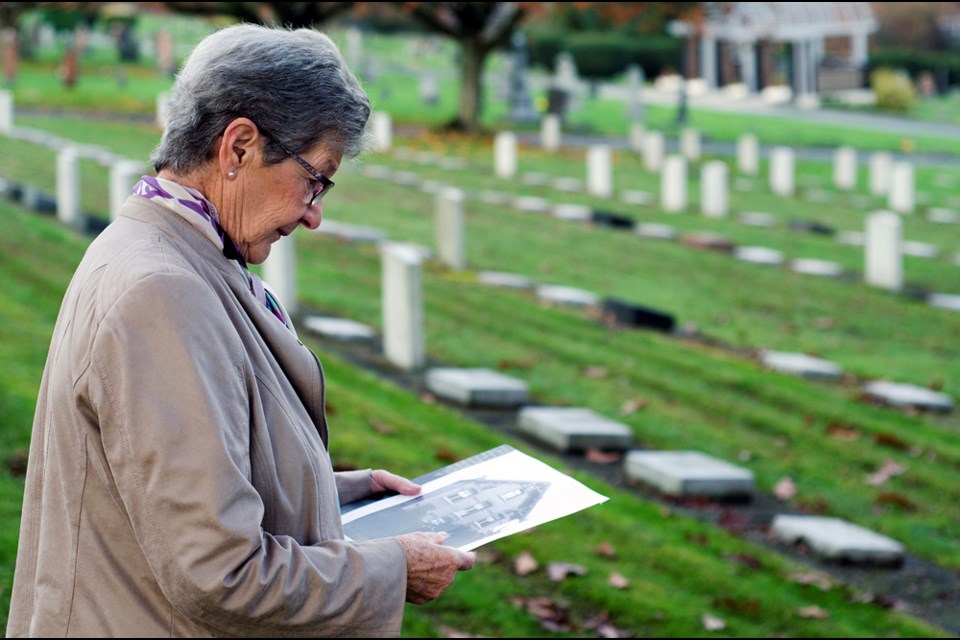There’s little chance Marie-Hélène Fekete-Piskorik will ever forget the sacrifices Canadian soldiers and their families made for her freedom 71 years ago, but she'll be at the New Westminster cenotaph for Remembrance Day nonetheless – as she has been every Nov. 11 for the last half century.
“I think it’s very important because – I don’t know if I can transmit my feelings to you in a proper way – just think of these young men who left their families, went to a foreign land to fight for the freedom of people they didn’t even know,” she told the Record. “Just to think about it puts tears in my eyes – all the mothers and fathers who never saw their children come back home. That is not a small event; that is big stuff, and we must never forget it.”
Fekete-Piskorik was six years old, in Grade 1 when teachers at her Belgian school suddenly told students to go home one day because their country was at war.
Within days, refugees escaping from the invading German army in the east flooded into her West Flanders town of Wingene.
Eighteen days later, Belgium surrendered, and a blanket of fear descended on her small town for four long years.
“People lived in fear because they never knew what would happen next,” she said.
German soldiers marched into town and commandeered lodging in her home.
Food was scarce, and her father and two brothers had to spend long periods in hiding from the Gestapo (the German secret police), who combed occupied towns for young men to press into forced labour in German factories.
“If you didn’t show up when you were summoned to be at a certain place at a certain time, they would come to the house and take you,” Fekete-Piskorik said.
She remembers running from house to house with the other village children, warning the townsfolk when the Gestapo was in town.
When her father wasn’t in hiding, Fekete-Piskorik remembers being very afraid lest the Germans overheard him listening to forbidden BBC radio broadcasts in their home.
“It was a climate of fear,” she said.
She remembers vividly the day that climate cleared, when Canadian soldiers, with a contingent of Polish troops, rolled into town in tanks and jeeps in September 1944.
“Jubilation like you wouldn’t believe, that’s my biggest memory of liberation,” she said. “I remember they made me a costume, and we all had parades and paraded down the streets dancing and singing. They made paper clothes for me with the Belgian flag because that was not allowed to be flown during the war.”
In the years that followed, Fekete-Piskorik became a nurse, immigrated to Canada in 1958 and moved to New West in 1961.
Now 81, with children and grandchildren of her own, her memories of that happy day 71 years ago are tinged with sadness, thinking of the young Canadian men killed before and after the parades through her hometown.
“They never came home, and I’m thinking of the mothers and fathers,” she said.
Fekete-Piskorik has never missed a Remembrance Day, before or after coming to New Westminster.
And over the years, at cenotaphs on Nov. 11, she has seen signs of hope her deep gratitude for the sacrifices made for her freedom so many years ago will live on.
“My heart is always so happy to see how many young families come there and bring their children,” she said.



